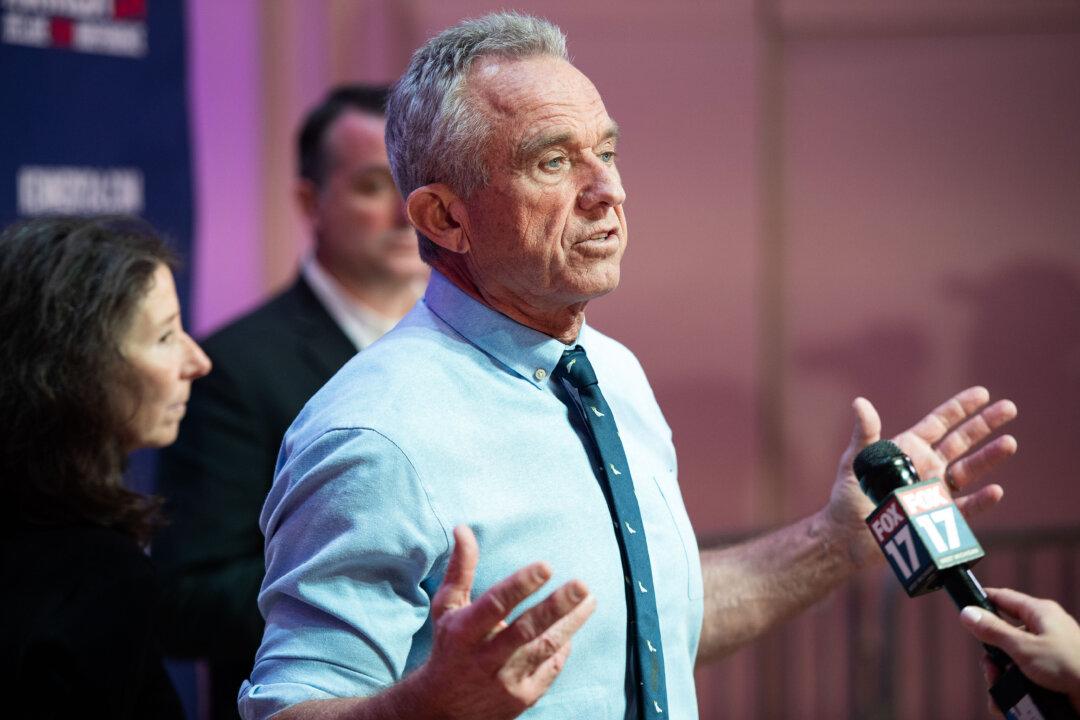Robert F. Kennedy Jr. intends to collect the required valid signatures for ballot access in Iowa during a voter rally in Des Moines on April 13.
In Iowa, independent candidates can gain ballot access in one day if 500 eligible voters attend an assembly and sign a form attesting they were present, according to a statement from Mr. Kennedy’s campaign.





